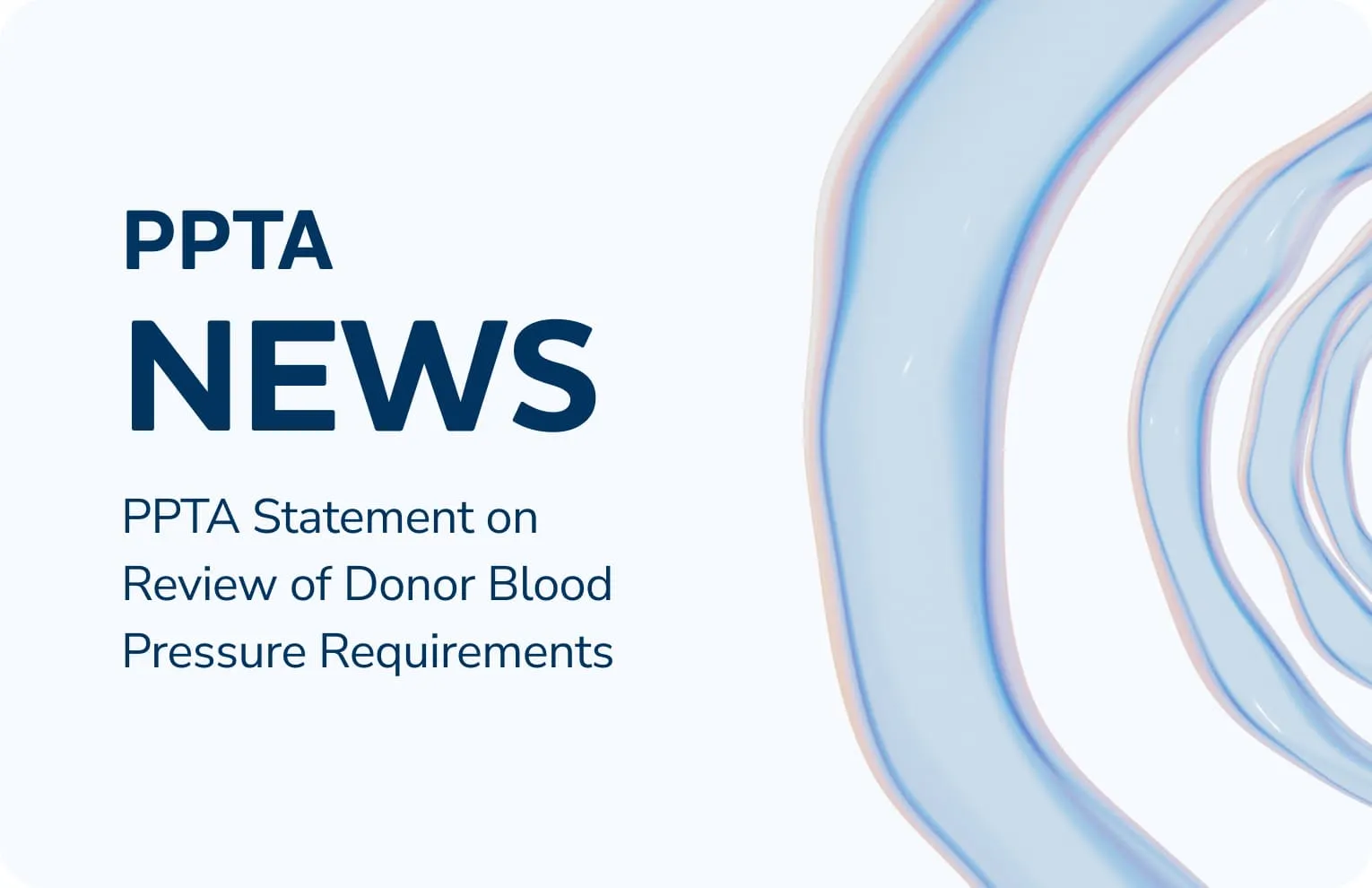[FDA Blood Products Advisory Committee: October 21-22, 2004]
Our members provide 60 percent of the world's needs for Source Plasma and protein therapies. These include clotting therapies for individuals with bleeding disorders, immunoglobulins to treat a complex of diseases in persons with immune deficiencies, therapies for individuals who have alpha-1 anti-trypsin deficiency, which typically manifests as adult onset emphysema and substantially limits life expectancy, and albumin which is used in emergency room settings to treat individuals with shock, trauma, burns, and other conditions. PPTA members are committed to assuring the safety and availability of these medically needed life-sustaining therapies.
PPTA welcomes the efforts made by the Food and Drug Administration (FDA) in reviewing the necessity to monitor at each plasma donation records of the donor's weight measurements over a two-month period of time for the purpose of detecting an unexplained ten-pound weight loss. The recommendation to monitor donor weight using measurements obtained to determine the amount of plasma that can be donated by the donor was instituted prior to the development of tests able to detect HIV infection. We agree with FDA that such monitoring today does not add a margin of safety with respect to HIV/AIDS. For Source Plasma collection centers, the repeated review of these weight-loss records over a two month period, rather than adding to the protection of public health, has instead become an onerous and difficult task that frequently results in auditing pitfalls rather than protecting the plasma donor or plasma supply.
PPTA agrees with the FDA assessment of the utility of new and improved testing technology, such as NAT. We also agree with FDA that unexplained weight loss could be an indication of poor health, but we would add that it could indicate a change in physical activity, dietary habits, employment, or season. FDA has focused on the usage of the word "unexplained" as being the operative term in its analysis, but this presupposes that any weight loss has one cause, and it is either explained or not. This binary approach may be suitable for determinations of objective testing criteria and standards, but a distal, surrogate marker such as the weight loss tracking, which never was truly determinative of a disease state, is not subject to such an interpretation, due to its inherent subjectivity.
We also agree, in large part, with FDA's historical review of the blood memoranda issued over the past twenty years, and the recommendations contained therein. The weight-loss tracking criterion is contained only in the Current Guide to Inspections, which is categorized as a Level 2 Guidance, which is not subject to comment before implementation. Our reading of these past memoranda is that while the 4/23/92 memorandum "did not specifically state whether the 2/5/90 memorandum was to be superseded[,]" [FDA BPAC Issue Brief, p. 1] we would like to point out that the 4/23/92 memorandum states that it "replaces' the 2/5/90 memorandum [Revised Recommendations for the Prevention of Human Immunodeficiency Virus (HIV) Transmission by Blood and Blood Products, p. 2]. Since the 2/5/90 memorandum is replaced by the later memorandum, the earlier memorandum should be considered to be superseded. We also note that the 1984 and 1990 memoranda are not generally available to the public on the FDA website, which indicates that they are, in fact, considered by the Agency to be obsolete.
PPTA appreciates the efforts of the Agency in this regard. PPTA also encourages the FDA to continue review of regulatory requirements and recommendations that do not add to the safety profile of product manufacture, plasma donation, or public health. While PPTA supports requirements and recommendations that can add measurable improvements to donor health and final product safety, outdated or valueless requirements add burdens without benefit. PPTA supports the FDA's review of requirements that have become obsolete and FDA's efforts to examine regulations and guidance criteria that limit efficiency and do not generate enhanced safety.
Created on October 21 2004.





